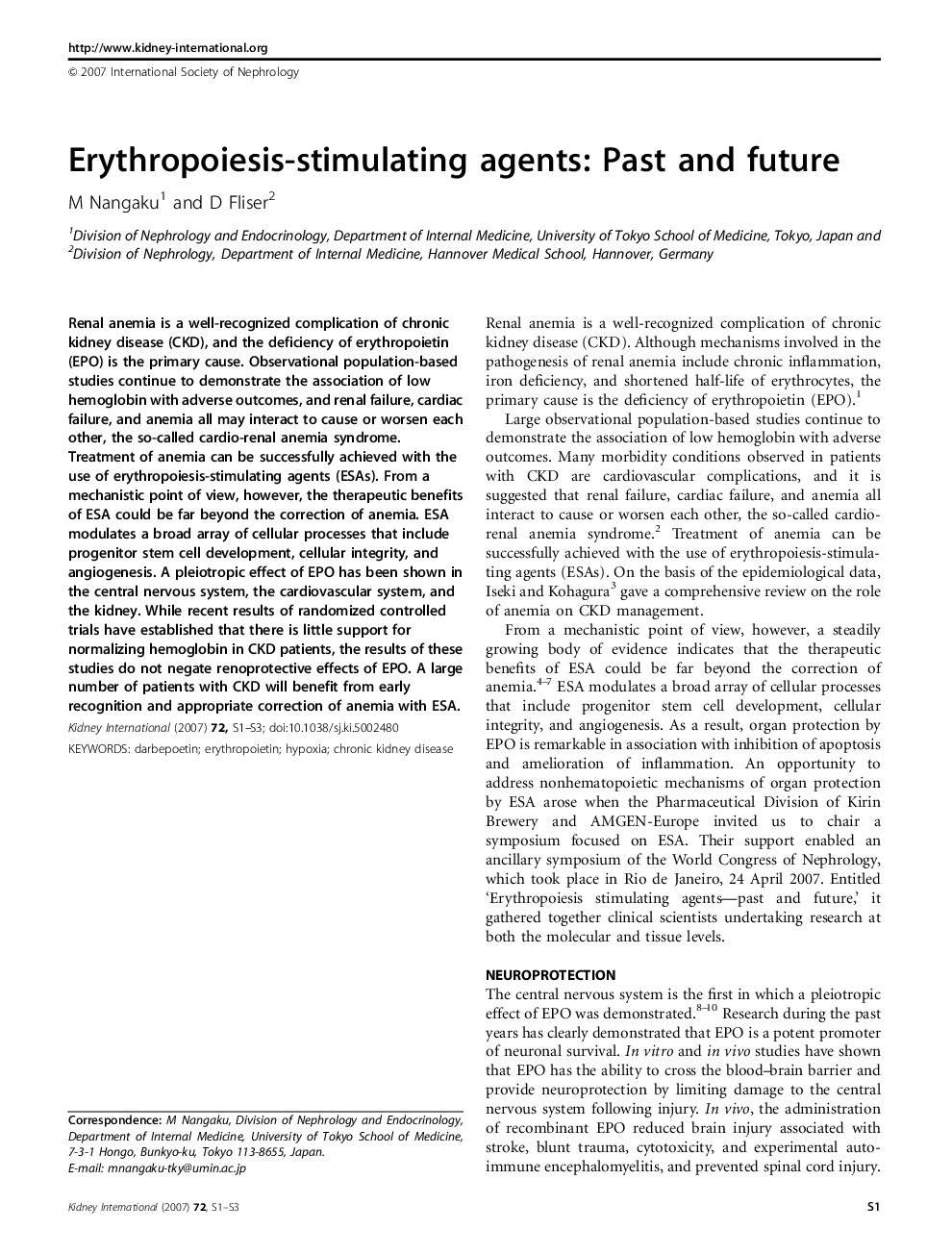| Article ID | Journal | Published Year | Pages | File Type |
|---|---|---|---|---|
| 8773544 | Kidney International | 2007 | 5 Pages |
Abstract
Renal anemia is a well-recognized complication of chronic kidney disease (CKD), and the deficiency of erythropoietin (EPO) is the primary cause. Observational population-based studies continue to demonstrate the association of low hemoglobin with adverse outcomes, and renal failure, cardiac failure, and anemia all may interact to cause or worsen each other, the so-called cardio-renal anemia syndrome. Treatment of anemia can be successfully achieved with the use of erythropoiesis-stimulating agents (ESAs). From a mechanistic point of view, however, the therapeutic benefits of ESA could be far beyond the correction of anemia. ESA modulates a broad array of cellular processes that include progenitor stem cell development, cellular integrity, and angiogenesis. A pleiotropic effect of EPO has been shown in the central nervous system, the cardiovascular system, and the kidney. While recent results of randomized controlled trials have established that there is little support for normalizing hemoglobin in CKD patients, the results of these studies do not negate renoprotective effects of EPO. A large number of patients with CKD will benefit from early recognition and appropriate correction of anemia with ESA.
Related Topics
Health Sciences
Medicine and Dentistry
Nephrology
Authors
M. Nangaku, D. Fliser,
